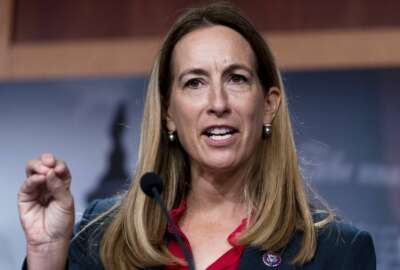HHS e-health IT funding to be performance based
HHS is just months away from awarding federal funds for health IT, but in order to earn the money, health providers will first have to prove that they are using...
wfedstaff | June 3, 2015 4:42 pm
By Jamie Blanco
Digital News Writer
FederalNewsRadio.com
Incentives plus information, equals transformation. That is the Health and Human Services’ innovative approach aimed at spurring the growth of e-health technologies. HHS is just months away from awarding federal funds for health IT, but in order to earn the money, health providers will first have to prove that they are using electronic health records in a meaningful way.
HHS Chief Technology Officer, Todd Park, spoke to Federal News Radio about the agency’s game plan.
Starting with the HITECH Act, the federal government in terms of its health IT investment isn’t reimbursing people for the purchase of electronic health records. It’s not actually paying for the adoption of health IT, it’s actually paying for the meaningful use of health IT which is a really revolutionary approach. What it says is, look, we’re not going to pay you just because you install software. We’re going to pay you for the meaningful use of that software to improve care for patients.
Park said the “meaningful use” strategy was produced through a public process led by the National Coordinator for Health Information and the Centers for Medicare & Medicaid Services, which has propagated the first edition of their own health IT software for 2011.
“The whole idea is that doctors and hospitals can earn substantial bonuses for meaningful use of heath IT, to track patient care, to implement clinician support, do drug – drug and drug-allergy – tests etcetera which makes patient care better,” Park explained.
Park said HHS also hopes to send a signal to health IT industry to develop more “usable,” certified and innovative systems.
Part two of the incentives involves the payment reform provisions in the Affordable Health Care Act.
At the end of the day shifting how we pay for care, from paying for just volume of services to paying for health and paying for value, which is what the Affordable Care Act enables and mobilizes us to do, it is just a phenomenally important shift because so many of the most useful applications of data and technology to help improve health are basically dependent upon the delivery system really being rewarded for improving health. That’s where you can actually use technology to coordinate care…use data tracking to help understand the health of your patient and actually where there might be gaps in care and to help intervene to keep them healthy. So that piece of the Affordable Care Act is particularly exciting, particularly relevant when it comes to data and technology being leveraged to improve care.
HHS also plans to take tremendous amounts of health data (smoking rates, obesity rates, food drugs and recalls, patient satisfaction rates) and make it open and accessible to the public.
“We’re now actually engaged in an open government campaign to take the underlying data sets and actually liberate them,” Park explained, “and marketing the availability of that data to innovators across the country to help turn (them) into a broad set of applications and services that are useful to consumers and to providers and to employers and to communities to help them make better decisions.”
Park compares the freeing of data to what was already done by the National Oceanic and Atmospheric Administration. NOAA’s liberated weather data spurred innovation in the form of the Weather Channel and iPhone weather apps among others.
Park hopes the potential for innovative application development will help the public realize the same kind of benefit in health care.
Copyright © 2025 Federal News Network. All rights reserved. This website is not intended for users located within the European Economic Area.





